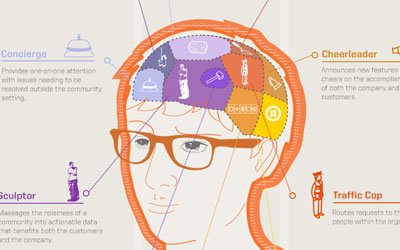Dinis Guarda interviews Qiaoyin Yang, Senior Industry Solution Manager at Huawei Technologies, in this new interview. The interview focuses on the role of innovative ICT solutions that are applied to the electric power industry and the challenges that companies face when dealing with massive electric grids and their legacy systems.
Qiaoyin Yang currently leads various standardization groups on the adoption of ICT to the electric power industry. A registered professional engineer, Qiaoyin Yang’s expertise are in the field of electric power system protection and automation, digital substation, IoT, digital transformation strategy consulting for the power industry.
Qiaoyin Yang’s interview has been published during Huawei Connect 2020, which is Huawei’s annual flagship event in Shanghai. At the event, Huawei will showcase its full stack, all-scenario solutions in ICT, and will especially showcase the need of an elaborate ICT infrastructure in the energy sector. As enterprises all over the world continue to be ravaged by the global pandemic, there is a global need for enterprises on all levels to push forward their digital transformations. As Qiaoyin Yang points out in Dinis’ discussion with her, synergizing AI, big data, and other technologies will allow governments and enterprises in the energy sector to prosper towards economic recovery.
Qiaoyin Yang Interview Focus
1. Can you tell us about yourself, background and your present role in Huawei?
2. What are the biggest challenges you find when it comes to electric infrastructure and the adoption of ICT AI, Big data, edge computing?
3. What are the biggest challenges when it comes to the legacy systems and electric power industry special as electric is now growing with electric new development solutions?
4. What is the ideal ecosystem you envision, and how do you see the related digital transformation of the infrastructure of cities and countries?
5. Can you tell us about your work, and Huawei’s strategy, to support the electric power industry for digital transformation?
6. How does this work for cities, local authorities and countries?
7. Regarding AI, Big data, edge computing, and digital platforms, can you talk about some user cases, and how the users are benefiting from these solutions?
8. How can these kinds of deployments be scaled to better support the public sector and transform the industries?
9. From your R&D experience, what insights can you bring from this research to be deployed in practice?
10. What are the major solutions Huawei offers in these areas?
Key Takeaways
Here are some of Qiaoyin Yang’s main takeaways from the interview. Do view the video above to find out everything Huawei and Qiaoyin Yang are working on regarding electric power industry technology solutions.
· About Qiaoyin Yang’s background. I am a Senior Industrial Solution Manager for Huawei. I work with my fellow colleagues to bring new ICT technologies and innovative solutions for the electric power industry. I am very honored to work with great talent to bring these solutions to our consumers worldwide. I hold a master’s degree in engineering from North Carolina State University. After I graduated I started working in the US for a couple of years specializing in automation engineering in the electric power and industry. I then moved back to China where I was approached by Huawei and started working on building ICT solutions.
· About building ICT solutions: challenges and opportunities. Today, there are many challenges for ICT applied to the electricity sector, including the development and adoption of new technologies such as AI, IoT, digital platforms, etc. From my experience, I have worked with different utilities, in the last year, and I can summarize the challenges into two main areas. First, the need to upgrade the electric infrastructure to meet the requirements and expectations from governments and society. Governments are now looking for more sustainable ways of upgrading their infrastructure and are thinking of renewable and green energy moving forward. Governments and utilities work with massive data, different approaches and the scope of a country-wide electric grid is huge so they face challenges regarding the efficient management of their electrical supply. The second main challenge comes from the management side of these new systems. AtHuawei we are building new ICT and we need to make sure that our technologies are safe, efficient, and tested while being compliant with current regulations. And more importantly, our clients need to evidence that. That is our challenge as a company.
· Legacy systems and how to deal with them. Our goal is to make sure that these legacy systems are upgraded and can work as efficiently as possible. From my experience working with other utilities and governments, I have found out that there are many legacy systems in most power grids. These systems are set up using different technologies and standards. They are different in the way we need to upgrade them –some are more interested to focus on a continued operating approach while others want to replace them. So our work is even more complicated at this point, especially as the pace of technology development has accelerated in the last years. We are now building entire ecosystems where different technologies and platforms work together including 5G, IoT, digital platforms, state-of-the-art software, etc. Fortunately, governments and industries are aware of this situation and they are trying to speed up new ICT adoption while setting up standards for the industry to follow. In this regard, I would say that the worldwide collaboration in the electric power industry has left it in a better place than other industries.
· About digital transformation. Based on my experience, digital transformation needs digital infrastructure. And to put this infrastructure in place takes a lot of effort in terms of resources and cross cooperation between industries, decision-makers, businesses, etc. Governments, industries and users all have to come to a consensus and see the importance of infrastructure in the digital transformation journey. Without that consensus, this most needed investment and innovation would definitely be delayed.
I want to point out the importance of collaboration between all players involved in the ICT adoption process as these technologies work across verticals and across different industries. Everything starts out from the government and decision-makers side and then ideally, all vendors and companies collaborate together to maximize resources and efficiency. One critical point is to standardize processes to make sure that systems are scalable and can be used across different countries and industries.
· About building scalable systems and smart cities. In principle, when we start building a new architecture, the first thing we try to put in place are the sensor points. These need to be installed in hospitals, street lights, transportation, waste management systems, etc. That is the first step in building a smart city as all different aspects of a city need to be interconnected to maximise efficiency. Once you set that up, you then need a managing framework capable of dealing with all that data coming from the sensors. This framework involves different ICTs, like a strong wireless network based on 5G, IoT data points, software, etc. When all that data is flowing, the next step is to gather and analyze the data to make the right decisions. It is in this process where AI and Big Data play a key role to make sure that data is read and translated accordingly. Drawing on Huawei’s experience, working with more than 200 cities around the world, we have been able to connect 60 different departments in a specific city, working together seamlessly and efficiently within this framework.
Regarding these new technologies and new ideas, it takes a lot of research and innovative thinking to make sure that they materialize into specific solutions that society can benefit from. More importantly, to make sure that these solutions can be properly applied and adopted there is the need for collaboration between different players and verticals.
· About Huawei solutions for the electric power industry. The Huawei team and I are working on different innovative solutions to be applied in the electric power industry. One of the solutions that Huawei provides, is AI software integrated into intelligent cameras that are able to spot and measure anomalies throughout the transmission lines without the need for workers going to those areas while providing 24/7 monitoring. We are also working on another solution regarding substations maintenance. We are now working with different governments to integrate legacy systems, substations, auxiliary systems, video security, etc all together to provide a unified platform for better efficiency and security. As an ICT company, we build this solution using the latest developments in AI, big data and other technologies.
More Interviews
Video Interview: Mamadou Toure, Founder Africa 2.0 Foundation – Digital Transformation In Africa
Qiaoyin Yang Biography
Qiaoyin Yang holds a master’s degree in engineering from North Carolina State University. After she graduated, she started working in the US for a couple of years specializing in automation engineering in the electric power industry. Qiaoyin Yang then moved back to China where she was approached by Huawei and started working in building ICT solutions.
Qiaoyin Yang currently works with Huawei Technologies as a senior industry solution manager and leads various standardization groups on the adoption of ICT to the electric power industry. A registered professional engineer, Qiaoyin Yang expertise is in the field of electric power system protection and automation, digital substation, IoT, digital transformation strategy consulting for the power industry, including CIGRE D2/B5.67, IEEE P2815 Technical specification for smart transformer terminal and IEEE P2413.2 Reference Architecture for Power Distribution IoT, among others.
She is a registered professional engineer in the state of Washington, USA, and an IEEE senior member. She holds four patents and has authored many publications.
Links / Sources
https://www.linkedin.com/in/qiaoyin-yang/
https://e.huawei.com/uk/solutions/industries/smart-grid
https://e.huawei.com/uk/solutions/business-needs/enterprise-network/agile-iot/power-iot

Hernaldo Turrillo is a writer and author specialised in innovation, AI, DLT, SMEs, trading, investing and new trends in technology and business. He has been working for ztudium group since 2017. He is the editor of openbusinesscouncil.org, tradersdna.com, hedgethink.com, and writes regularly for intelligenthq.com, socialmediacouncil.eu. Hernaldo was born in Spain and finally settled in London, United Kingdom, after a few years of personal growth. Hernaldo finished his Journalism bachelor degree in the University of Seville, Spain, and began working as reporter in the newspaper, Europa Sur, writing about Politics and Society. He also worked as community manager and marketing advisor in Los Barrios, Spain. Innovation, technology, politics and economy are his main interests, with special focus on new trends and ethical projects. He enjoys finding himself getting lost in words, explaining what he understands from the world and helping others. Besides a journalist, he is also a thinker and proactive in digital transformation strategies. Knowledge and ideas have no limits.


























